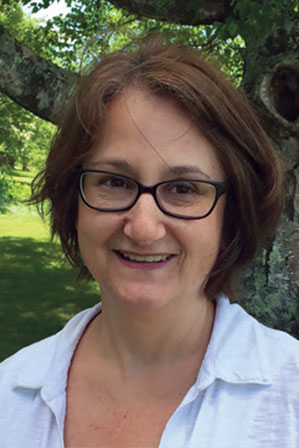Continuing the Conversation: Toward a Diverse, Inclusive Foreign Service
Letter from the Editor
BY SHAWN DORMAN

The recent months of unease and disruption have presented a unique opportunity to look in the mirror, face the realities of inequality baked into our society and our institutions, and consider practical measures to effect real change. For these reasons, we have decided to keep the focus on race, diversity and inclusion for a second edition.
Judging from the response to our coverage so far and the new and renewed activity on the subject, members of the U.S. Foreign Service and the foreign affairs community more broadly are determined to put this opportunity to good use.
How gratifying it is to hear that an FSJ article inspired readers, giving many confidence and hope and a sense of community. So it has been with Julie Chung’s September essay, “The Making of a Real American Diplomat,” a reflection on her personal journey from child immigrant from Korea to senior-level diplomat for the United States of America.
Julie Chung received an outpouring of support and thanks from colleagues around the world (as well as FS candidates, think-tanks and the Hill) for sharing her story. The article was viewed thousands of times in the first two weeks from release. Other articles in the September edition have also struck a chord, contributing to broader discussions and planning now ongoing inside the foreign affairs agencies.
It is clearly an important time to put a spotlight on these issues. The mandate for a Foreign Service that represents the diversity of America appears to be an idea whose time has (finally) come.
The September focus, “Addressing Race, Diversity and Inclusion,” included six articles that not only describe the problems but offer recommendations for change, actionable proposals for creating a more diverse, inclusive and equitable Foreign Service. We pick up from there in this issue, bringing in voices from USAID, the Foreign Agricultural Service and from 10 of the employee affinity groups, all working toward “Making Diversity and Inclusion Real in Foreign Affairs.”
Stacy D. Williams shares “One Bureau’s Model for Moving Forward,” describing the establishment and the purpose of the Bureau of Western Hemisphere Affairs Diversity Council. With innovative programs and outreach, this relatively new but already effective council could be worth replicating in other bureaus and agencies.
Valerie Brown introduces us to “Diversification in the Foreign Agricultural Service.” Starting her Foreign Service career 19 years ago as the only Black woman FSO in FAS, and currently co-chair of the Civil Rights EEO Committee for FAS, she’s the right person to tell this story.
And over at USAID, Youshea Berry serves as chair of the Payne Advisory Group and brings us the story of “Boosting Diversity at USAID” through the Payne Fellowship program.
Richard A. Figueroa looks at the State Department’s record of resistance to implementation of “even basic EEO standards.”
In “Needed: A Management Mindset,” Charity L. Boyette makes a strong case that to strengthen the Foreign Service through diversity, State must prioritize management tradecraft in hiring, tenure, promotion and assignments decisions.
Elsewhere, in a practical and convincing Speaking Out, Warren Leishman explains why everyone should “Stop Shipping Your Personal Vehicle!” And Jonathan Rickert reflects on encounters with “Nixon in Moscow, March 1967.”
The special FS Heritage package, “McCarthyism Revisited,” includes Gerald Loftus on “The Exile of a China Hand: John Carter Vincent in Tangier,” Felicity O. Yost on her father’s recollections in “A Time of ‘Great Malaise’” and excerpts from John W. Ford’s 1980 article on his firsthand experiences during “The McCarthy Years Inside the Department of State.” Lessons for today shine through in each piece.
In his column AFSA President Eric Rubin requests your feedback on how AFSA can do better, considering the trials of 2020 and preparing for the challenges—and opportunities—ahead.
Please keep in touch and help continue the conversation.

